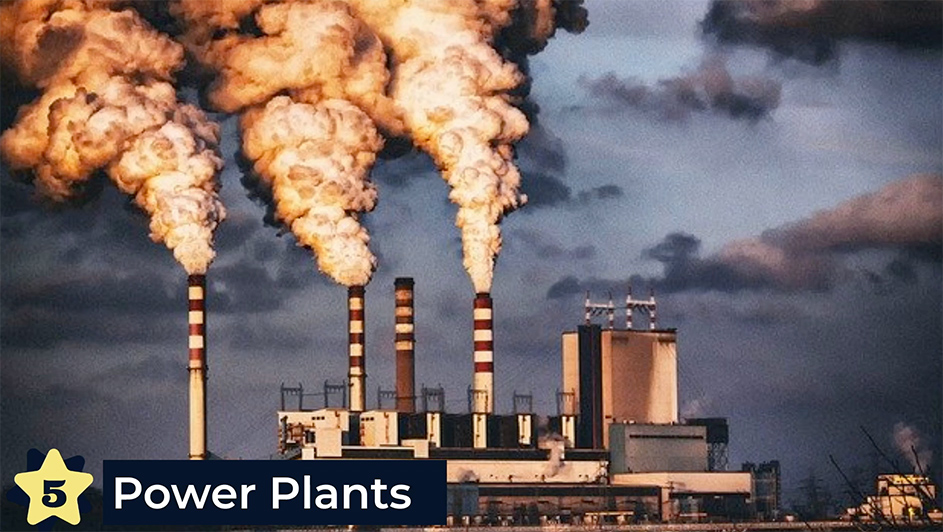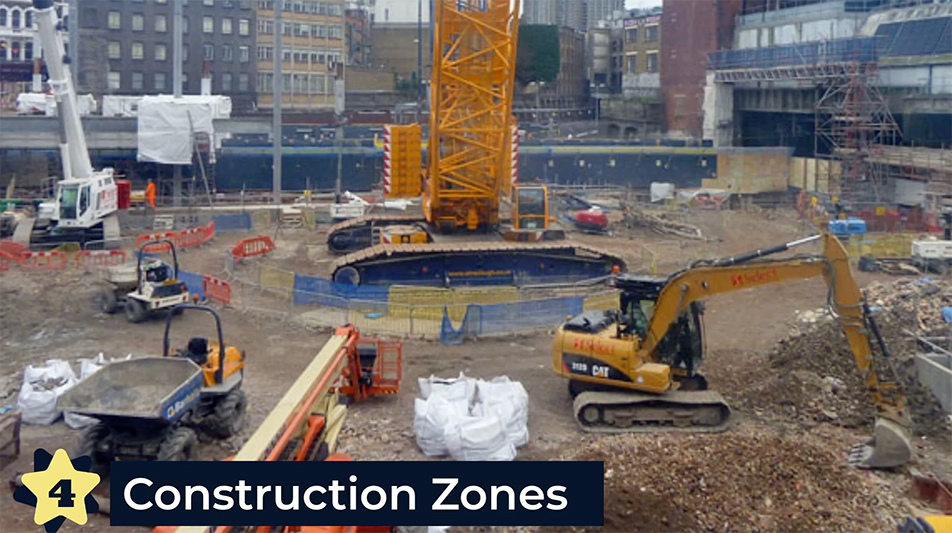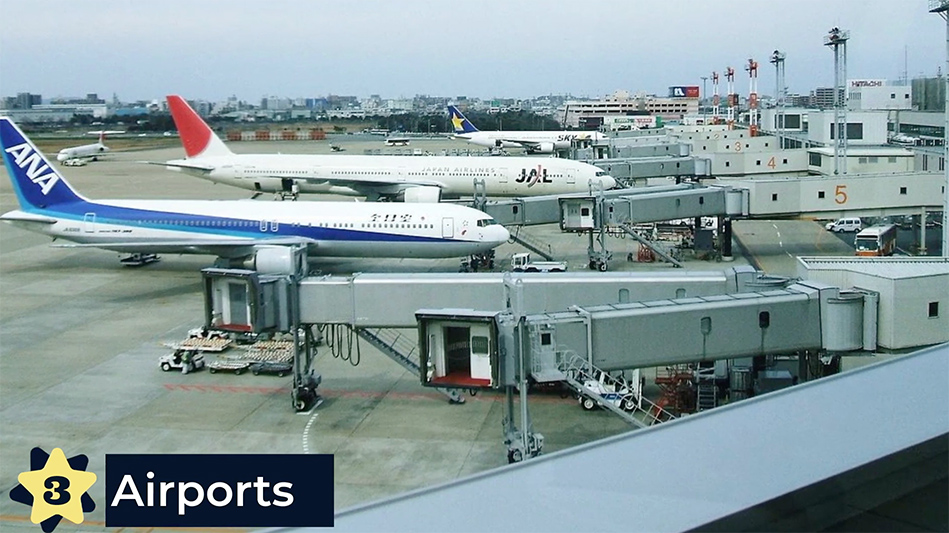Places With The Worst Outdoor Air Quality
When someone thinks about outdoor air pollution, they usually think of smokestacks from a power plant spewing pollution into the air. That would be correct, but there are other outdoor places with poor air quality that people should avoid if they have breathing issues. These are the Top 5 places with poor outdoor air quality.

NUMBER 5 – POWER PLANTS
Air pollution from coal- and oil-fired power plants contains more than 80 hazardous air pollutants required for control under the Clean Air Act, including arsenic, chromium, lead, formaldehyde, acid gases and dioxins. They also emit acid gases that mix with the air in the surrounding area. Coal produces more pollution than any other energy source. While coal produces just 44% of U.S. electricity, it accounts for 80% of power plant carbon emissions. Burning coal leads to soot, smog, acid rain, global warming, and carbon emissions.

NUMBER 4 – CONSTRUCTION ZONES
Apart from the noise, construction sites can also result in poor air quality. Airborne contaminants can be carried by wind to surrounding neighborhoods. Contaminants spreading around in air can travel large distances in a short time. The main construction contaminants that spread around by wind include asbestos and gases such as carbon monoxide, carbon dioxide, and nitrogen oxides.

NUMBER 3 – AIRPORTS
Airplane air pollution includes sulfur dioxide, nitrogen oxide and other toxic particles that are created from the condensation of the jet’s hot exhaust vapors. It is a health concern to surrounding areas. Taxiing jets that sit waiting for takeoff are the main contributors to this pollution. These pollutants can worsen many lung conditions, such as asthma and COPD and contribute to the development of heart disease. In fact, people who live within six miles of an airport have higher levels of asthma and heart problems.

NUMBER 2 – CITIES
Cities are, by definition, concentrated areas of population – and concentrated area of population mean more pollution. Rapid urbanizing of cities around the world is causing greater concentrations of outdoor air pollution, with more people crowding into tighter spaces, constructing buildings, more power plants and highways, more buses, trains, and cars, all of which generate air pollution in cities and spread to surrounding areas.

NUMBER 1 – TRAFFIC
Some people have a false sense of security inside their vehicle that they are protected from outside air pollution. However, the air inside your vehicle can be 15x WORSE than the air outside it, especially when you are caught in traffic surrounded by hundreds of vehicles emitting dangerous oxide gasses. Pollutant levels are often higher inside because cars take in emissions from the surrounding vehicles and recirculate them. According to the Environmental Protection Agency, the average adult breathes 3,400 gallons of air a day. If you commute two hours a day, you’re inhaling hundreds of gallons of pollution-choked air in traffic, which can worsen asthma, emphysema and other lung issues.
ALSO – Poor Air Quality due to smoke from wildfires
Up and down the West Coast, many people have had their lives upended as fires have engulfed homes and destroyed entire communities. At the same time, those same people are also experiencing breathing issues from the wildfires. Cities and towns are being covered in a thick haze of smoke that is causing headaches, dizziness, nausea and respiratory health issues.













